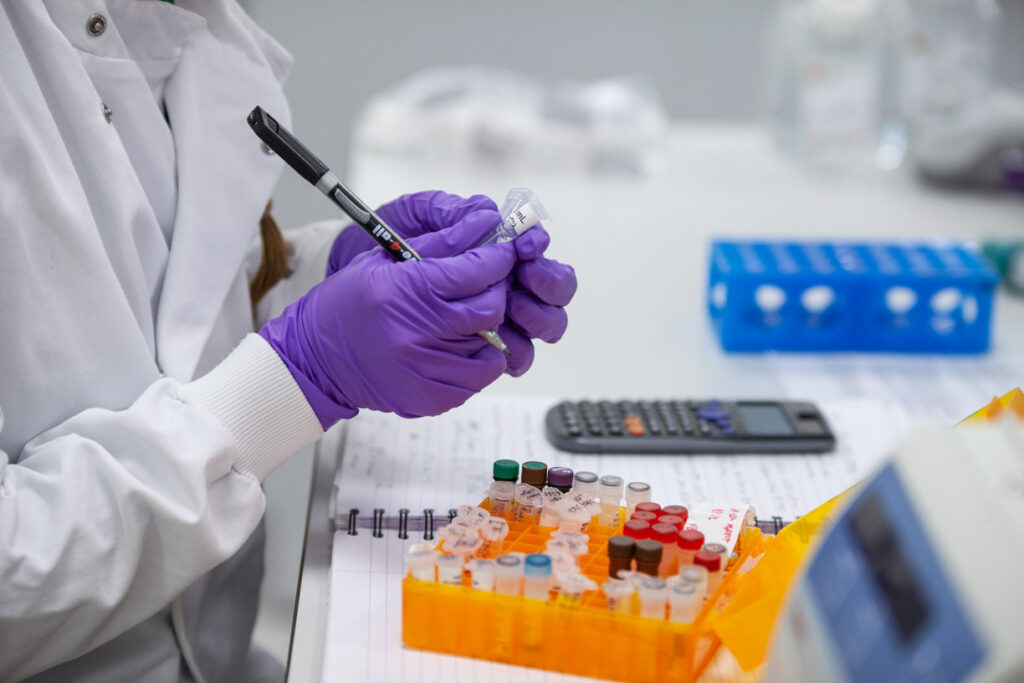Muscular Dystrophy Translational Research Fund
The Muscular Dystrophy Translational Research Fund is a joint fund created by LifeArc and Muscular Dystrophy UK (MDUK) to accelerate new treatments for people with the disease.
Each partner made equal contributions to provide a total fund of £1 million. The call closed on 31 May 2022.

Overview
There are currently no effective treatments for congenital muscular dystrophies. MDUK and LifeArc want to address this by funding treatment-focused, milestone-driven medical research projects that could accelerate the development of new treatments for people with CMD.
The joint funding scheme will support projects that are on the translational pathway. We hope that these projects will generate valuable outcomes that can secure follow-on funding (such as additional translational funding or partnering with/licensing to industry) to support continued development and progression towards clinical trials.
Funding available
The fund is now closed to new applications.
Application requirements
It is anticipated that we will fund a small number of high-quality projects costing £300-400k of up to three years duration. Funding will be tied to milestones and subject to the milestones being achieved.
Support for projects on the translational pathway
The congenital muscular dystrophies (CMDs) are a group of conditions that share an early presentation and a common muscle pathology. In the great majority of cases, children with congenital muscular dystrophy experience initial symptoms at birth or in the first few months of their life. They present with muscle weakness and can appear to be ‘floppy’.
Contractures or tightness of the ankles, hips, knees, and elbows are common, because the baby has not had the muscle strength to move around freely in the womb. The different types of CMD are caused by mutations in different genes and the severity of symptoms varies.
Successful applications will:
- seek to develop a therapeutic intervention to address the need for more effective treatments for CMD
- have a strong scientific rationale
- be a target-driven, with milestones and a credible delivery plan
- have a clearly set-out route to CMD patients.
The following activities are eligible for support:
- developing candidate therapeutic entities (e.g., drug discovery)
- pre-clinical testing of novel therapeutic entities in vitro or in vivo
- pre-clinical validation for existing therapeutics repurposed for CMD
- early-phase clinical trials (phase 1/2) of novel therapeutic entities
- early-phase clinical trials of existing therapeutics repurposed for CMD.
Treatment types eligible for support from the scheme include small molecules, peptides, antibodies, gene therapies (including antisense oligonucleotides), cellular therapies, and regenerative medicine.
The following activities are not eligible for support:
- fundamental or investigative research that does not clearly link to the development of a therapeutic for CMD
- studies where the primary purpose is to investigate CMD disease mechanisms
- late-phase clinical trials (as likely to be beyond the funding limit)
Webinar
MDUK and LifeArc ran an online webinar to provide further information on the call and how to prepare an application. The webinar is available on replay using the access code: Z.xS0Cx@
Final funding decisions will be made by the panel and are expected to be announced in early 2023. For further information, please contact us.
Contact us
In submitting your personal data via this form, you consent to being contacted via the details provided so that your enquiry can be responded to. If you would like your data to be removed, please email dataprivacy@lifearc.org.
Please see our Privacy Policy in relation to the personal data you submit to us through this page.
